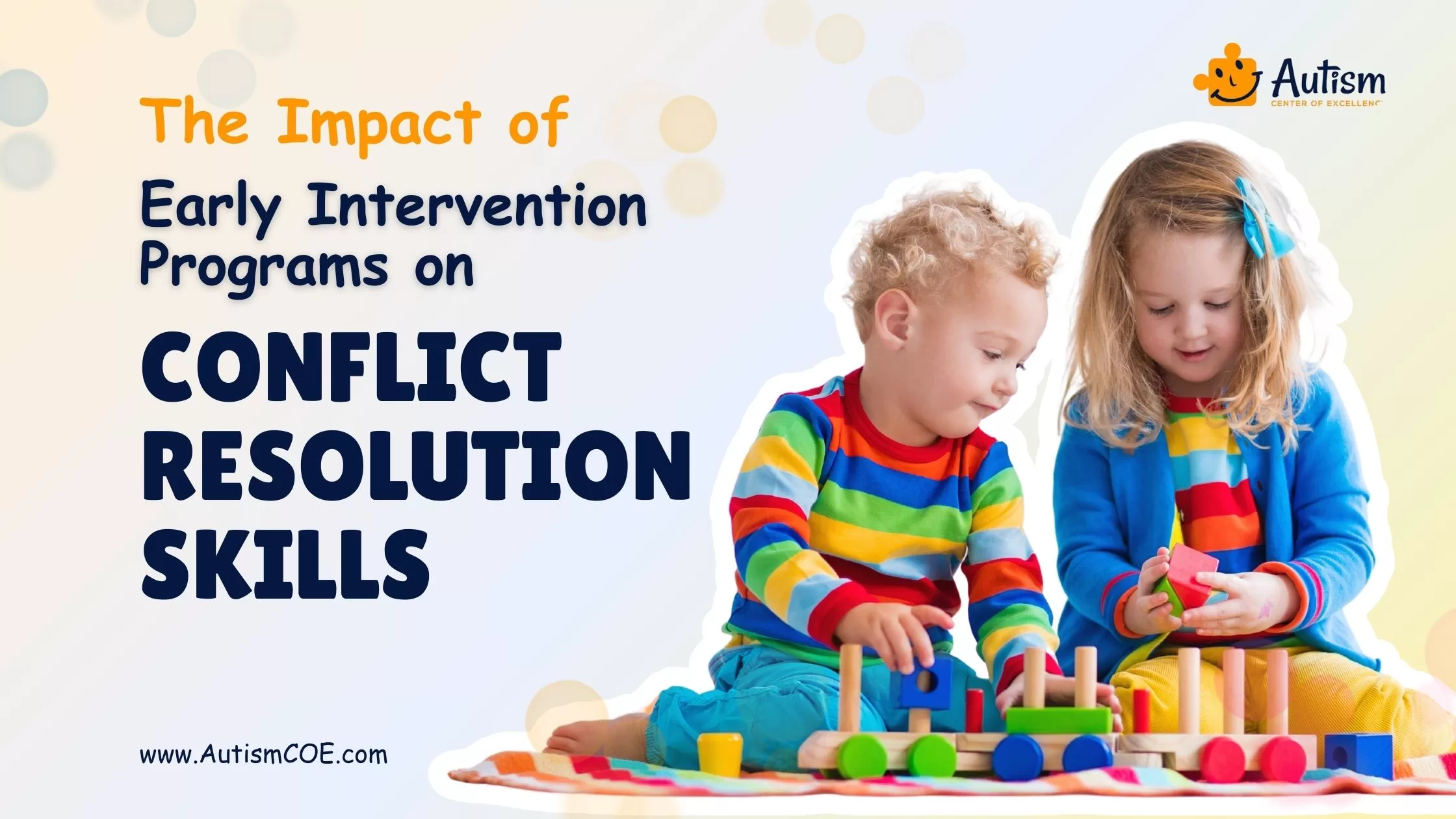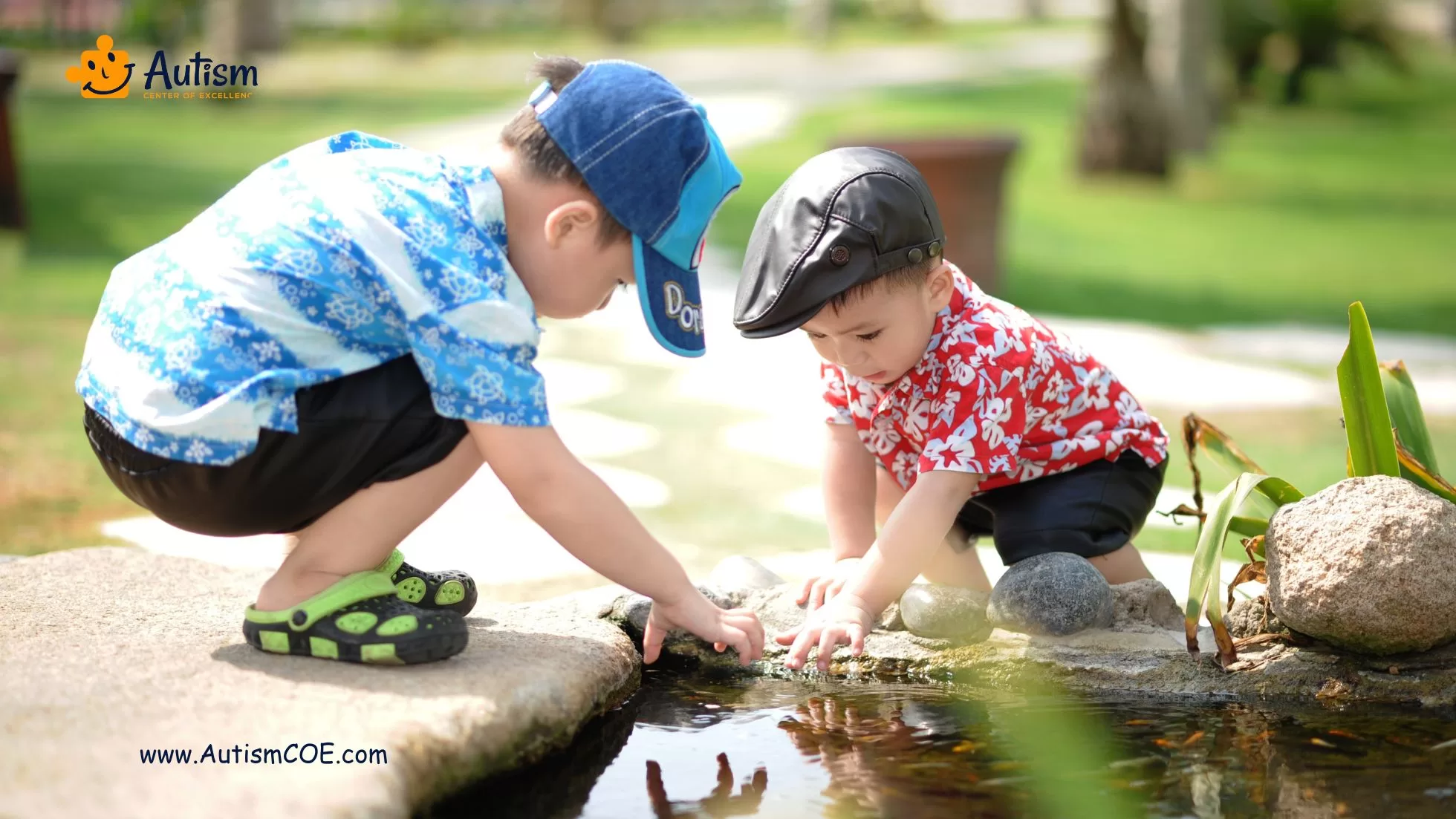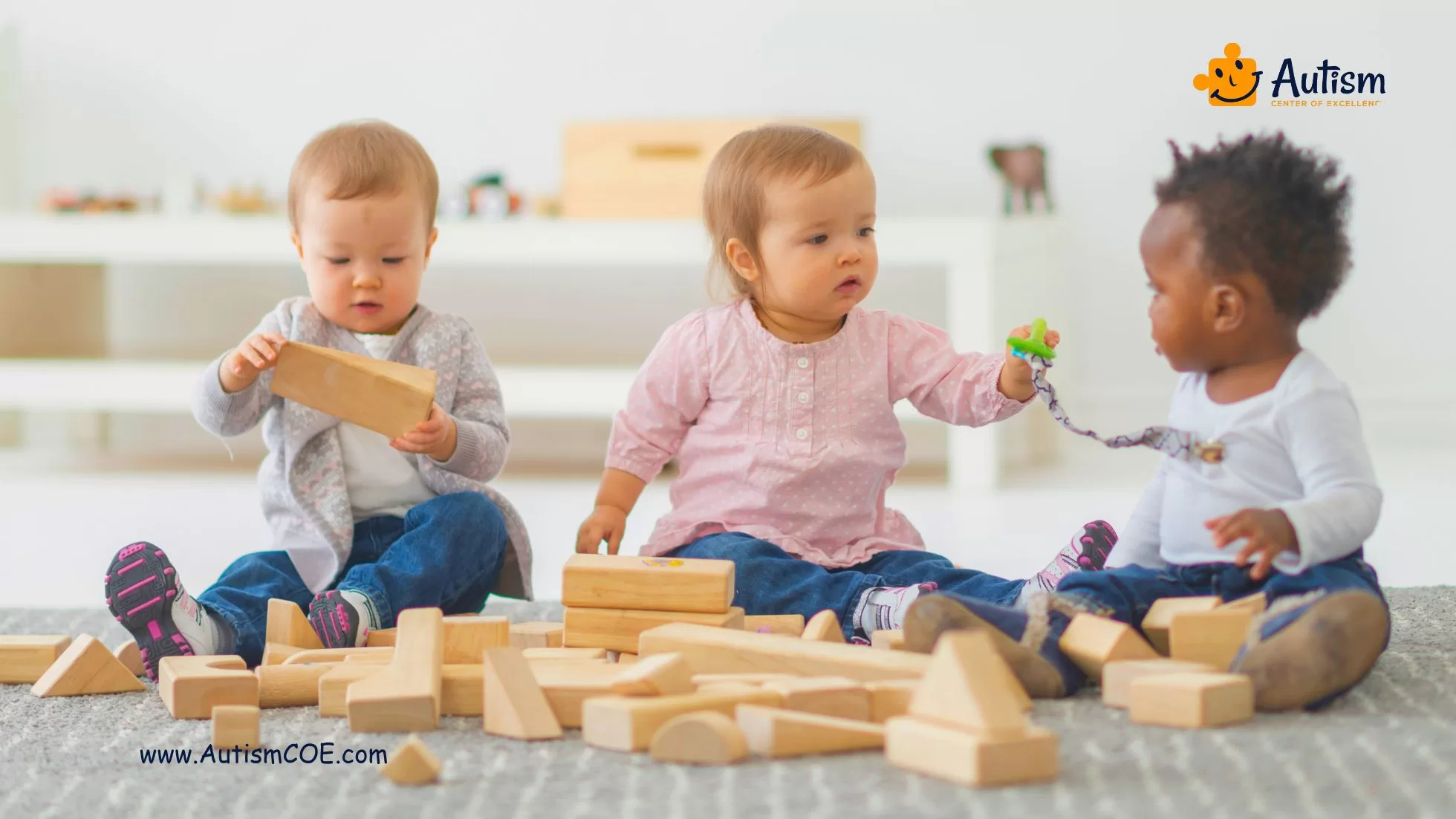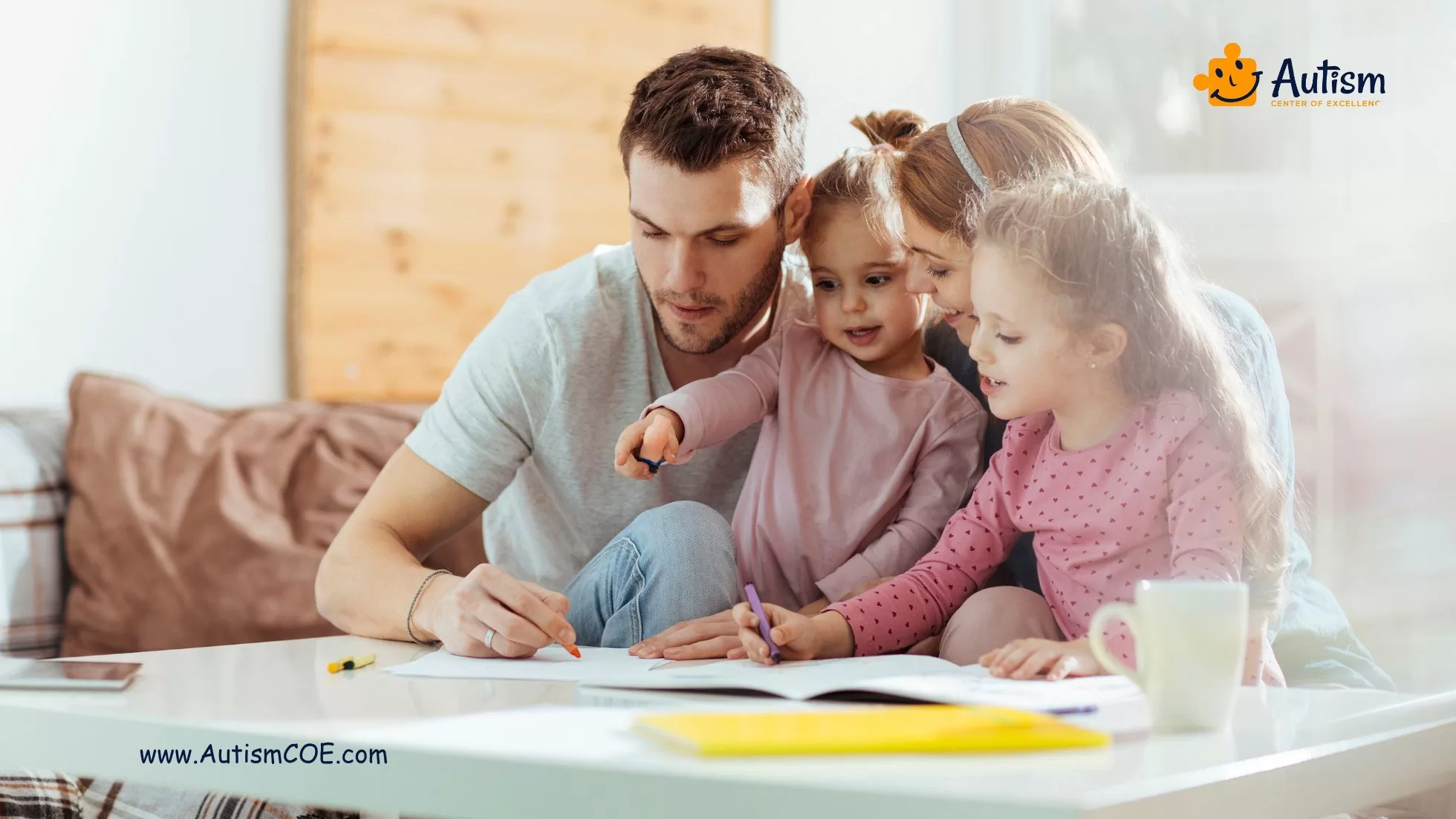Unit 26: The Impact of Early Intervention Programs on Conflict Resolution Skills

Conflict resolution is a vital skill for children, paving the way for healthy interpersonal relationships and emotional development. For children, especially those with autism, mastering these skills can significantly enhance social interactions and reduce behavioral challenges.
Early Intervention Programs with ABA help equip children with the skills they will need to facilitate conflict resolution. In this blog, we discuss the role of early intervention programs in creating combat-ready kids, conflict resolution strategies, and ideas for parents, teachers, and therapists.
What is Conflict Resolution and Why is it Important for Children with Autism?
Conflict resolution is a method of resolving disputes among parties peacefully. Required skills for good relationships include Communication, negotiation, empathy, and solving problems.
Conflict resolution skills are particularly essential to the emotional regulation and social competence of children, and more so when it is a Child with Autism. They tend to be unable to understand cues or regulate their emotions in social situations. This most often brings about unwanted conflicts, ones that would be best dealt with by learning to resolve disagreements constructively.
Mastering conflict resolution skills for children with autism goes far beyond a mandate to prevent disputes; it enhances their possibilities of connection and inclusion. They develop connections in communication gaps and help the children express their needs more effectively and their emotions. Conflict resolution skills can indeed do much to encourage critical thinking and perception. Self-esteem and self-resilience may increase as children learn to use conflicts to their advantage.
Integrating conflict resolution training enables a child with autism to have the basic tools to cope with their situations, thereby bringing maturity to a kid.

What are Some Conflict Resolution Skills?
Understanding conflict resolution begins with identifying the essential skills children need. These skills lay the foundation for children’s social growth as they help them coexist with their peers and in school settings.
1️⃣ Active Listening
This skill involves fully concentrating, understanding, and responding thoughtfully to others. It helps children learn to understand different perspectives, reducing misunderstandings.
2️⃣ Empathy
Empathy allows children to recognize and share the feelings of others, fostering compassion and understanding. Teaching empathy helps children relate to peers and communicate more effectively.
3️⃣ Problem-Solving
This skill encourages children to identify solutions to conflicts, promoting creativity and critical thinking. It enables the child to think critically and be innovative while solving problems, understanding the issue, brainstorming solutions, and coming up with effective strategies.
4️⃣ Emotional Regulation
This is another critical skill related to conflict resolution. Children should learn to control their feelings and communicate appropriately when there is a conflict.
5️⃣ Negotiation
It is the process of both parties understanding by communicating and bargaining. A child needs to be taught negotiation so that on their behalf and others’ behalf, they have mutual results from advocacy.
6️⃣ Assertiveness
It enables them to represent their views and emotions positively. The assertiveness skill makes sure that children deliver their requirements and limits without aggressiveness and creates positive interactions.
7️⃣ Cooperation
Cooperating is working as one to reach a common goal. They learn how teamwork and shared responsibility can be useful in solving problems and healing broken relationships.
The Role of Early Intervention Programs in Enhancing Conflict Resolution Skills
Early intervention programs play an essential role in ensuring that conflict resolution skills are incorporated into education. Early intervention programs overcome development challenges early to ensure children acquire essential life skills.
ABA (Applied Behavior Analysis) therapy teaches these skills effectively using structured repetition and positive reinforcement. It breaks down complex social skills into more Manageable parts by letting a child practice and master a way of solving conflict in a safe setting.
This is a real-life situation and role play that the children go through to provide a firsthand experience. The approach shows the reality of conflict resolution and ensures a safe environment in which children can learn to adapt.
Children are prepared for constructive handling of conflicts and hence end up having healthier relations and smoother interactions in general.
Enjoying Reading?
Join Our Weekly Newsletters!
Subscribe now to stay updated with our latest email updates.

Conflict Resolution Activities for Children with Autism
Children with autism often require tailored strategies to grasp conflict resolution concepts. Here are some effective activities:
Role-Playing Scenarios
These may provide children with the chance to understand how to handle conflicts in a safe and supportive environment. Role-playing allows them to understand other people’s perspectives and proper reactions to those perspectives.
Visual Aids and Social Stories
Visual Aids, such as charts, diagrams, and images, enhance children’s ability to grasp the steps involved in conflict resolution by making abstract concepts more tangible. These tools provide a visual representation that helps clarify complex ideas, allowing children to better understand and internalize the process.
Turn-Taking Games
These give children a chance to develop patience, cooperation, and the value of sharing and waiting for your turn, important traits in conflict resolution.
Sensory Play
The Activity of Sensory Play can teach the child to better control their feelings and maintain focus when conflict arises. Children engaged in activities like playing with kinetic sand or water beads to handle anxieties better. It prepares them for more productive dispute resolution.
Emotion Cards
Use emotion cards with different images that represent emotions. Such interventions help the child identify and express their feelings, especially children with autism. Children will become better at expressing their emotional state by associating feelings with some visual cue on the emotion card which is an important part of the conflict resolution process.
Collaborative Art Projects
Art projects developed under the need for teamwork inculcate cooperation and shared goals for children. A team effort will be developed while working on a mural or group painting wherein collaboration can evoke a feeling of give-and-take, an experience of conflict resolution through creative expression for the children.
By embracing such practices, parents and educators can act in creating a supportive environment within their learning processes that helps children with autism grow and be effectively interactive within social settings.

Peaceful Parenting Approaches for Resolving Conflicts
Peaceful parenting Enhances Early Intervention. Parents can model calm behavior and teach emotional regulation by maintaining a peaceful demeanor themselves.
These techniques enhance the integration of conflict resolution for children in the daily living pattern as an ongoing supporting mechanism that is concordant with early intervention strategies.
Reinforce Conflict Resolution Skills
Peaceful parenting strengthens early intervention programs by creating a soothing environment at home.
Model Calm and Empathy
Parents must be calm and compassionate when in a fight, so these kids will learn to regulate their emotions on such models.
Practice Active Listening
Give your undivided attention to the concerns of children, acknowledge their feelings, and open communication so that they feel heard and educated in constructive emotional expression.
Set Clear Boundaries
It educates children about boundaries and expectations and provides an outline of behavior.
Offer Choices
The child is empowered to make some decisions and is encouraged to develop decision-making and negotiation skills.
Use Positive Reinforcement
Acknowledge and reward effective conflict resolution behaviors to encourage continued use of these strategies.
Benefits of Strengthening Conflict Resolution Skills Early
Early skills developed in conflict resolution are of numerous benefits. Pointing to the benefits, what these skills are, and why they are crucial to kids, are the reasons why they develop early:
🚀 Improved Social Interactions: Children who master these skills are better equipped to form positive relationships and collaborate with peers.
🚀 Reduced Challenging Behaviors: Disciplined expression and emotion regulation help the child to have fewer behavioral problems, including acting aggressively and throwing tantrums.
🚀 Enhanced School Readiness and Academic Success: Skills for resolving conflicts help create a positive environment where the child can listen, learn, and perform well academically.
🚀 Boosted Self-Esteem: Successfully navigating conflicts can lead to increased confidence and self-assurance in children.
🚀 Stronger Emotional Intelligence: Skills that are developed early on ensure that children can handle emotional outbursts much better and, therefore, are more emotionally intelligent.
🚀 Preparation for Future Challenges: Being prepared to solve conflicts through available skills makes preach resilience and adaptability before the challenges in future, professional as well as personal life.
Frequently Asked Questions & Answer
What are the 3 C's of Resolving a Conflict?
The 3 C’s of conflict resolution are Communication, Cooperation, and Compromise. Communication means expressing thoughts and feelings clearly, Cooperating towards finding a solution together and compromising, which means finding a mutually acceptable outcome.
How Can You Teach Children to Resolve Conflicts Between Siblings?
Engage siblings in solving disputes by actively guiding open communication, determining appropriate fair play measures, and teaching them how to express their feelings peacefully. Engage roles for situations to teach problem-solving, value empathy, understanding, and sharing points of view.
What Role Does ABA Therapy Play in Conflict Resolution?
ABA Therapy helps children resolve conflicts by breaking down these complex social interactions into manageable pieces. Essentially, this type of therapy would be described as Discrete Trial Training to reinforce positive behaviors that will help children learn effective conflict resolution strategies.
How Do You Track Progress in a Child's Conflict Resolution Skills?
Progress can be tracked by observing improvements in the child’s ability to communicate emotions, negotiate solutions, and cooperate with peers. Regular assessments and feedback sessions with caregivers and educators also help monitor development.
Conclusion
Conflict resolution skills are important for the development of a child to lead a balanced life, shaping them to gain emotional well-being and social competency. Programs in Early Intervention with peaceful parenting techniques would give that basic foundation that can be done with children, preparing them for complex social interactions in society.
Investment in such programs will ensure the caregivers and educators influence how a child navigates conflict relationships, leading to positive emotional and social results. The ABA Clinic, AutismCOE offers comprehensive Early Intervention and School Readiness Programs, emphasizing the importance of these foundational skills. Through these efforts, children can develop the resilience and adaptability needed for lifelong success.
Please Note: The content of this blog is for informational purposes only and should not be considered a substitute for professional medical advice, diagnosis, or treatment. Consult a qualified healthcare professional for personalized guidance tailored to your specific situation.

Bhavika Bhasin
Bhavika Bhasin is the Research and Marketing officer at AutismCOE. She works with children and adults with ASD. Her clinical research includes evaluating various available autism screening and diagnosis methods and their efficacy. She is currently developing a novel screening exam that is indicated to be more accurate than the existing available exams. She is also writes articles papers for various publications.

